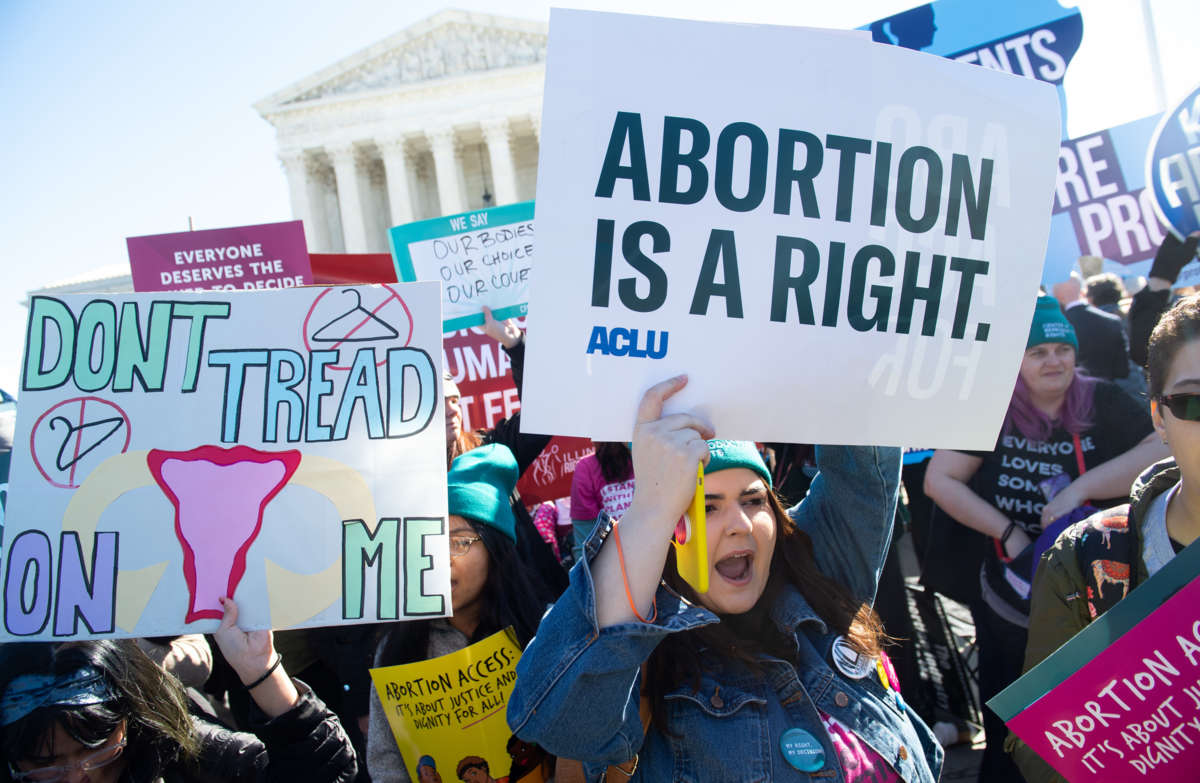Support justice-driven, accurate and transparent news — make a quick donation to Truthout today!
According to a new poll, the overwhelming majority of Americans believe abortion should be legal — and most Americans feel the Supreme Court’s refusal to hear challenges to a highly restrictive abortion law in Texas earlier this month was a mistake.
The most recent Monmouth University poll, released on Monday, found that 62 percent of respondents believe that abortion should always be legal or legal with some limits, while just 35 percent felt it should be illegal with some exceptions or always illegal.
Fifty-four percent of respondents opposed the Supreme Court’s choice to decline to intercede and issue a stay on a Texas law that banned abortion after six weeks of pregnancy. The law allows private citizens to sue anyone who helps a person procure an abortion for sums of up to $10,000.
Seven in 10 Americans (70 percent) disapprove of the Texas law, with only 22 percent saying they support it, the poll found. A greater proportion of respondents (81 percent) said they disapproved of the part of the statute that grants private citizens a reward of up to $10,000 for reporting health care providers who perform abortions.
The survey also showed that most Americans agree that the Supreme Court should not undo abortion protections that were recognized in Roe v. Wade, the 1973 decision that legalized abortion access in every part of the United States. Only 31 percent of Americans feel that the Court should revisit that historic decision, while 62 percent said they should leave it as is.
The right to access abortion services — a safe and routine medical procedure — shouldn’t be subject to democratic preference. But more than anything else, the Monmouth University poll reveals that the American public is unhappy with the Supreme Court’s conservative bloc majority choosing to let the Texas anti-abortion law remain intact until it is challenged in lower courts. Indeed, data from a separate poll last week from Quinnipiac University found that a plurality of Americans (49 percent) disapproved of the Court’s actions. Only 37 percent gave the institution a positive approval rating.
This is the lowest approval rating the Court has ever seen in the history of the Quinnipiac University poll asking the question.
Those polling numbers come as the Department of Justice (DOJ) has filed formal legal briefs urging the Supreme Court to reject arguments that would undo access to abortion services through a different challenge to Roe v. Wade, presented by the state of Mississippi. Earlier this summer, that state’s attorney general, Lynn Fitch, filed her own legal briefs calling for the Court to find the Roe decision unlawful, arguing that it was an “unprincipled” decision that “damaged the democratic process, poisoned our national discourse, [and] plagued the law.”
In addition to the DOJ urging the Court to reject those arguments from Fitch, more than 200 Democratic lawmakers in Congress have also filed a brief to the Supreme Court asking for it to keep Roe intact. Those lawmakers noted that there haven’t been any legal developments warranting the dismantling of abortion protections, save for a change in the Court’s political makeup.
“[T]he only thing that has changed since Casey and Roe were decided is the composition of the Court — which is not a compelling reason to re-examine Roe,” a press release from those Democratic lawmakers said.
Speaking against the authoritarian crackdown
In the midst of a nationwide attack on civil liberties, Truthout urgently needs your help.
Journalism is a critical tool in the fight against Trump and his extremist agenda. The right wing knows this — that’s why they’ve taken over many legacy media publications.
But we won’t let truth be replaced by propaganda. As the Trump administration works to silence dissent, please support nonprofit independent journalism. Truthout is almost entirely funded by individual giving, so a one-time or monthly donation goes a long way. Click below to sustain our work.
